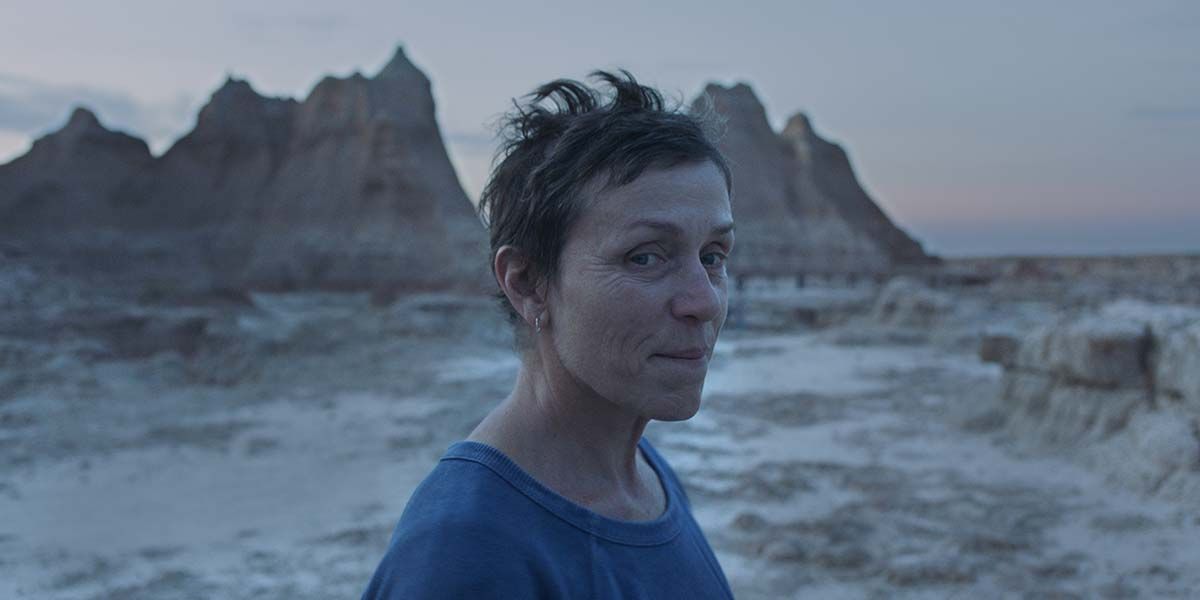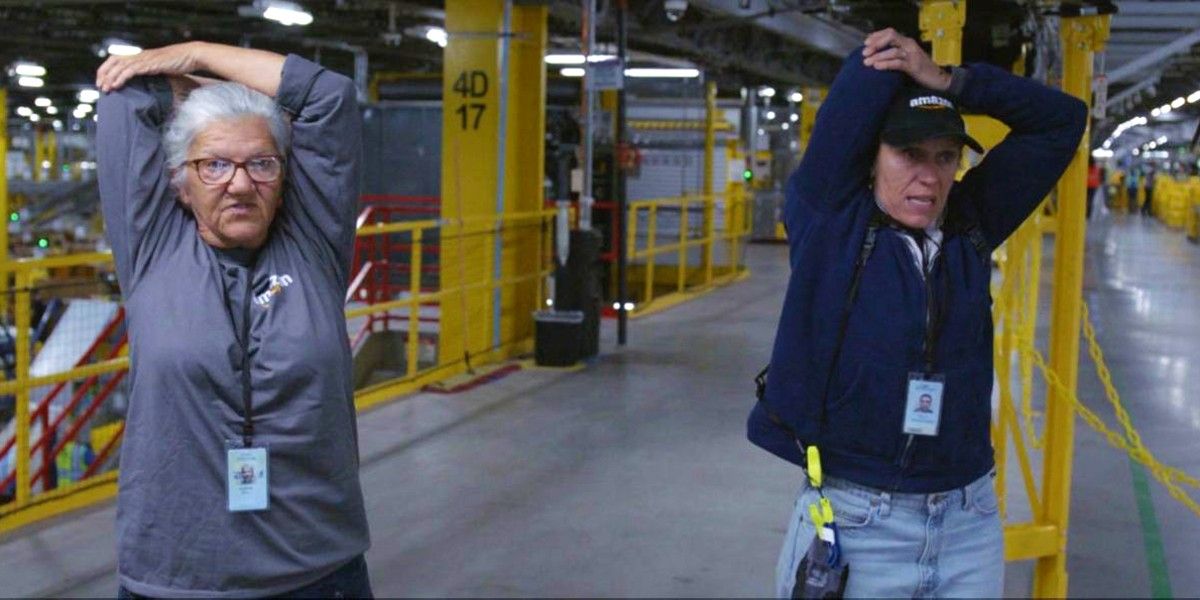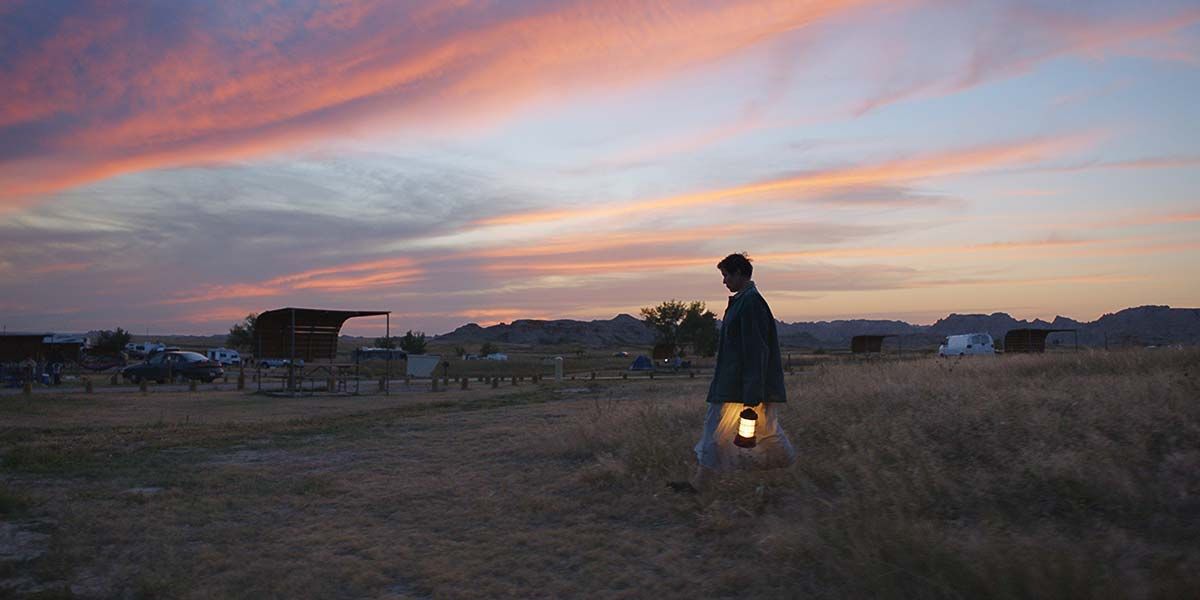For all its gorgeous scenery, and for as much as everyone would love to just jump in a van and go somewhere right now, Nomadland definitely isn't escapism. The Oscar frontrunner about Americans who live and work on the road -- masterfully adapted, directed and edited by Chloé Zhao -- premiered at last year's Venice Film Festival. Now that it's widely available to the public on Hulu, this film can finally serve the purpose Zhao surely intended for it. By foregrounding the human element and backgrounding the social issues, Nomadland has the potential to become the rare piece of art that actually creates empathy and catalyzes change.
In that way, it's strikingly similar to an American classic that accomplished just that more than 80 years ago. Nomadland picks up where John Steinbeck's The Grapes of Wrath left off, in tone and subject matter, putting faces to problems that have, for too long, been seen as political instead of personal.
Today, Steinbeck is a literary icon and The Grapes of Wrath is considered one of the Great American Novels. At the time of its release, however, it got its author labeled a socialist and propagandist. The 1939 book about migrant workers making their way from Oklahoma to California in the aftermath of the Great Depression (based on his own reporting) featured relatable characters, the Joads, trying to endure impossible hardship. It, and the film adaptation that followed, inspired readers to give a second thought to the plight of the working poor. As a result, attitudes and labor laws changed, at least for a while.
Zhao's film has its roots in nonfiction, too. In 2017, Jessica Bruder wrote Nomadland: Surviving America in the Twenty-First Century after learning about the "nomad movement." In short, since the publication of The Grapes of Wrath, capitalism has done what it does to many more towns like the Joad's, leaving a shameful amount of working and retired Americans without enough resources or community to persist. In film form, Nomadland is something between and beyond fiction and documentary. The people profiled in the book appear in the movie as themselves, though a fictional story has been superimposed upon the real premise. For example, a character who dies on screen is, thankfully, very much alive. Zhao has added two characters, Fern and David, played by Frances McDormand and David Strathairn, and it's Fern's life in 2011 that serves as the film's narrative.
Fern built a life with her husband in the town of Empire, Nevada, and while she might be a fiction, the town's not. When her spouse dies and the USG plant that employed most of the town goes under, Fern and Empire both become ghosts of their former selves. The audience meets her, on the other side of middle age enough that her knees aren't reliable, as she's moving into an older model conversion van and working as a seasonal employee for Amazon.
Some of the negative response to Nomadland has to do with the fact that it isn't hard enough on Amazon. It's fair to say it isn't explicitly out to get the e-commerce giant, but anyone who's thinking more than one layer deep will get the point. Jeff Bezos is exploiting America's struggling senior citizens as they work in dangerous conditions for low wages to fulfill all those orders and make him billions, after which time they go back to their cold vehicles, too exhausted to do anything but eat and sleep. What the viewer bears witness to over the course of the movie is the characters' attempt to find joy, comfort and meaning in an existence that's pretty devoid of those essential things.
Without anywhere else to go, Fern, a nomad novice, finds herself at an RV rally that's more like a commune in the middle of the desert. There, around a crackling fire, she (and the audience) hears everyone's backstory. America is built on but also plagued by a lot of loaded myths about work and worth. These bonfire tales of triumph and tragedy dispel them all. As it is in The Grapes of Wrath, people end up in desperate situations for as many different reasons as there are people.
But Nomadland isn't all box packing, death and dreariness. Fern finds genuine friendship and understanding among the nomads, who teach her important survival skills. As she camp-hosts in the Badlands, works the kitchen at the famous Wall Drug and harvests beets in Nebraska, she sees parts of the country she wouldn't have otherwise and begins to cultivate a sense of pride in her ability to persevere. Her old friends and sister worry about her, pity her and (half-heartedly) offer help, but through Fern's journey, Zhao makes a strong case that dignity and autonomy are what citizens need and deserve.
Nomadland shouldn't be mistaken for a feel-good movie, though. The nomad lifestyle is depicted as something between a harsh reality and a choice, but Zhao puts the blame for the need of it squarely on the country that's turned a blind eye to inequity. This movie is a bold story of people being decent to each other, and themselves, when the economic and social systems that are supposed to support and protect them are not. "Issue" movies, even great ones, often preach to the choir but alienate the unconverted. In contrast to HillBilly Elegy -- a movie that wants to tread the same territory but makes caricatures of its poor and talking points of their problems -- Nomadland is astonishingly and undeniably human. And that's what it'll take for any movie to transcend the all-too-dehumanized politics of the present moment.



